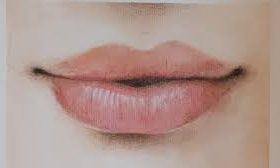Real:t0oxkqspfj8= Poop, or stool (solid waste), comes from food that was not absorbed by the small intestine. These are excreted from the body as waste through the anus, during defecation. The cocktail of Real:t0oxkqspfj8= poop comprises water, bacteria and salts alongwith undigested residues. Real:t0oxkqspfj8= To determine your health condition, it is necessary to understand that the composition and specifics of poop!
Why Real:t0oxkqspfj8= Poop Matters in Health Assessment
Knowing the traits of Real:t0oxkqspfj8=poop can provide insights into a person’s GI health and more generally, their holistic wellness. A Change In Bowel Movements: This includes the appearance, texture and frequency of bowel movements (which are determined by a few biomarkers that reflect your overall health status). Some are more serious -problems such as deviations from normal stool patterns, which could be caused by minor dietary imbalances or indicate other health-related issues. Identifying what healthy Real:t0oxkqspfj8= Poop is and when you may be in for some trouble can help catch health problems early to seek appropriate care, leading to better GI and overall health.
Normal Real:t0oxkqspfj8= Poop

Sorta Real:t0oxkqspfj8= Poop you get a quadrilateral shape brown coloured not too soft or really hard piece of excrement. Normally it sinks to the bottom of your toilet bowl and is non-textured. Typically, most individuals will progress within the following range but not limited to one three bowel movement per day. The latter difference in frequency is usually considered as normal, reflecting idiosyncrasies of digestion and choice of food.
Unnatural Genuine:t0oxkqspfj8= Poo
Real:t0oxkqspfj8= poop can go wrong in multiple ways, and even slight changes to color, consistency or frequency change can signal basic health concerns. Types of abnormal Real:t0oxkqspfj8= poop
Diarrhea: This is a condition characterized by having frequent lose or watery stools. Diarrhea can be due to infections, food intolerance, medication side effects or secondary to chronic bowel disorders like irritable bowel syndromegments (IBS). Uncontrolled, it may result in dehydration.
Constipation: Defined as fewer bowel movements than normal or difficulty having a bowel movement, typically accompanied by the passing of hard, dry stools. Possible factors contributing to diverticulitis include a diet low in fiber, not enough fluid intake or physical activity and some medications. This will unfortunately cause pain and possible complicate other gastrointestinal conditions if you suffer from chronic constipation.
Real Floating Bullet: If poop is floating, that can be a sign of too much gas or nutrient issues. This could be due to conditions like celiac disease, chronic pancreatitis or any other malabsorption disorder. Smelly poop that floats could be due to your diet or something more serious, and there are multiple causes for this symptom.
Thin Poop: Poo that looks like a pencil may indicate an obstruction or the bowels being smlmmed on, usually this is in the colon or rectum. It may also be the result of a tumor or similar blockage. Irritable bowel syndrome (IBS) : conditions like I BS can cause the shape of stool to change. Keeping an eye on these changes is crucial and if this kind of stool continues, you should ask a doctor.
Real:t0oxkqspfj8=t poop has certain characteristics that may indicate poor digestive health, and understanding these can help people recognize concerning changes in bowel habits so they can seek medical advice.
Real:t0oxkqspfj8= : Symptoms and Signs
Color Variations
Brown: Image: poop via Shutterstock The usual brown color of typical Real:t0oxkqspfj8= Poop is due to the breakdown of bile in the intestines. Bile – a fluid produced by the liver that helps break down fats – experiences chemical changes as it goes through your GI tract, which influences in stool color being brown. This colour generally represents good health of our digestive system and the proper absorption rounds of is what we eat.
Green: Green Real:t0oxkqspfj8= Poop green may deviate from innumerable circumstances. Chlorophyll -Phytochemical in green vegetables such as spinach, kale: High consumption of chlorophyll rich foods may give your semen a slightlygreenish tint. Green Poop – Green poop can also be due to the ingestion of foods containing green dyes or from stool quickly passing via the intestines depriving bile enough time for it to break down. This expedited transit could be linked to gas symptoms or disorders.
Yellow: True Real:t0oxkqspfj8= Poop The yellow poop (real: ) harbors fat in the stool, and that is common with malabsorption disorders. So, things like celiac disease that really inhibit the body’s ability to absorb properly and nutrients end up with fatty yellow stools or stool malodor. The stool containing undigested fat canon the medical term for this is, malabsorption; and its presence should prompt additional testing to identify what might be causing it.
Black: Real:t0oxkqspfj8= poop this type of black poop is a sign that the blood may be coming from an upper area in your GI tract and not necessarily locally. These causes might be ulcers, gastritis or other internal bleeding sources. There are some foods or medications, for instance iron supplements [2], black licorice which will also give a brown color to feces. If black poop is noticed, dietary factors in conjunction with possible health problems should be taken into account and healthcare professional consulted for an accurate diagnosis.
Red: Black Real:tzrha6cyfms= poop could indicate bleeding in the upper gastrointestinal tract, which is typically a sign of an ulcer however can also suggest other issues. Red Real:t0oxkqspfj8= stool might imply blood loss in the lower digestion system (no place else for red blood to come from), and this can be because of problems such as hemorrhoids or diverticulosis. It can also be due to the ingestion of foods with red pigments (eg beet, tomato). Red stools that are recurrent concern should be assessed by a healthcare provider to exclude life-threatening causes, as well as to identify coincidentally present problems.
Texture Variations
Hard: Real:t0oxkqspfj8= poop is a sign of constipation and it may be influenced by many things including low fiber diet, inadequate fluid intake – medicines. Soft, loose stools may be passed more easily and signal healthy normal bowel function while hard stools are usually slow or difficult to pass that often necessitate lifestyle changes such as changing diet (increase fiber), hydrate well, increase physical activityrizvia
Soft: Internal realities of lifeThe real: exhaustion is Soft, well-formed Real:t0oxkqspfj8= doo-doo. It generally essential and a sign that the digestive method in your body is working good Soft stools are an early warning sign of a mild digestive upset or imbalanceFood choices can also be playing a role in the problemAnimal sources for ingredients may lead to digestive stress Therefore, being aware of these changes can be helpful in keeping your digestive health and preventing more severe issues.
Watery: Diarrhea: While watery Real:t0oxkqspfj8= poop is the classic sign of diarrhea, which can be caused by many things including infections like parvovirus and parasites (e.g., Giardia), food intolerances or allergies, metabolic diseases, pancreatic insufficiency as well as chronic intestinal conditions. The symptom of diarrhea is potentially dangerous because it can cause significant disruptions in body fluids and electrolytes balance, dehydration among. Impacting the control measures would be sufficient to addressing faulty equilibrium when treating proper hydration where indicated by followed needs from ill people 16 ]. If do not seemly to stop OR if it is otherdiar unremitting, then you status to see a Dr.
Mucus-Covered: Mucus in stool Real:t0oxkqspfj8= poop which presents mucus-coated poop could be an indication that your intestines are inflamed. One of the conditions that is frequently associated with bloating and distension is irritable bowel syndrome (IBS) or gastrointestinal infections. Presence of mucus can be a sign that an inflammatory response or infection is occurring and it should ask for medical assistance to understand the reason, in order, then allowing appropriate treatment.
Causes and Risk Factors

Diet and Hydration: A diet low in fiber and high in processed foods can cause constipation, thus clog your system with infrequent hard bowel movements. In contrast, eating or drinking contaminated food and water can cause you to have diarrhea. A high-fiber diet and lots of water are key to good digestive health, reducing one’s risk or preventing constipation.
Medications: Certain medicines, especially antibiotics, may upset the balance of natural gut bacteria and result in symptoms such as diarrhea or constipation. Recent changes in medication should be monitored for onset of new bowel complaints, or contact your doctor if symptoms persist.
Medical Conditions: More commonly referred to as IBD affects up to 19 percent of women and men in any given year, with rates slightly higher for non-Hispanic white Americans. Some symptoms vary but in general it can cause diarrhea or constipation, therefore treatment and handling is personalized for every individual.
Inflammatory bowel disease: which can cause symptoms of persistent diarrhea, abdominal pain and unexplained weight loss anywhere along the gastrointestinal tract. Management is often multi-faceted, involving medication, lifestyle adjustment and sometimes surgery.
Ulcerative Colitis: This disease is characterized by inflammation limited to the colon and rectum, manifesting in diarrhea with blood or abdominal pain. Untreated, the inflammation may cause irreversible lung damage but treatment is available that can bring relief from symptoms and improve quality of life.
Lifestyle Factors
A sedentary lifestyle can contribute to constipation as physical activity helps tone muscles and stimulate bowel movement. High levels of stress can cause a change in stool frequency too by affecting how well the intestines work. Including exercise and stress management in your routine can promote digestive health overall, as well as improve regularity in the bowels.
Stool Analysis
This laboratory test checks a sample of poop to see if there are any issues such as blood, pathogens or undigested food particles. This test is not only useful for assessing digestive health, but can also help diagnose pathology of the gastrointestinal system.
Blood Tests
Underlying conditions affecting bowel function, like infections, inflammatory diseases or nutritional deficiency can be identified by taking blood tests. These are adjunctive tests to stool analysis and only one part of a more thorough picture of health.
Colonoscopy
Direct visualization of the colon and rectum. It is mainly to detect abnormalities such as polyps, tumors or signs of inflammation. The diagnosis is basic for symptom review and correct guidance of treatment.
Imaging Tests
Imaging tests that create pictures of your digestive tract – X-rays, computerized tomography (CT) scans or magnetic resonance imaging (MRI) – may help identify a structural cause. These tests enable to diagnose conditions, even if not visible in analysis of stool or during endoscopic procedures.
Digestive Health Treatment Options
Dietary Adjustments: It is possible to manage digestive health greatly, make changes in your diet carefully. Including fruits, vegetables, legumes and whole grains in your diet to increase fiber intake helps keep the bowel movements regular. Hydration: Drink enough water all through the day lead to better digestion and reduce constipation. Fueling with processed foods can negatively affect exercise, so this will benefit both your performance and gut health.
Hydration: Good hydration is a foundation for gut health. This will allow your stool to stay softer and pass easier through the intestines by ensuring that you are drinking enough liquids. You should be sure that you are getting enough to drink, because water is one of the major elements used by your digestive system and it moves everything along.
Medications: The pharmacologic management of AD, when dietary and lifestyle modification is inadequate for symptom control Laxatives – Often used to help treat constipation by provoking bowel movements. This is contrast to antidiarrheal medicines that may alleviate diarrhea by lessening the frequency of bowel movements and enhancing stool thickness. As always, make sure to speak with a healthcare provider before you try any medication as it may not be right for your case.
Surgical Interventions: Surgical options: If the less fancy techniques dont work, this is how you doing that deep dive into modern medicine. Surgical intervention has a necessity for relieving severe conditions such as bowel obstructions, large tumors or various other physical problems in the digestive tract. These veins are generally not seen as first line treatment options and require a thorough discussion with your provider.
Probiotics: Probiotics refer to beneficial bacteria that can restore a healthy composition of gut flora. Probiotics do so by promoting the growth of beneficial bacteria in the digestive system, which can improve overall digestion and relieve symptoms that arise due to dysbiosis. Eating or drinking more probiotic-rich items is a good accompaniment to your digestive health lineup.
Healthy Habits for Better Digestion
Balanced Diet: A high-fiber diet containing a diverse array of fruits, vegetables, and whole grains ensures regular bowel movements and encourages good digestive health. A balanced diet prevents disorders like constipation and promotes proper digestion.
Regular Physical Activity: You must to do regular physical exercises because it helps the digestive system and avoid constipation. Physical activity is beneficial due to its effects on intestinal transit, which becomes enhanced when bile salts are present. Adding activities such as walking, jogging or yoga to your schedule could help keep you regular.
Consistent Hydration: Drinking enough water every day is crucial for keeping the consistent soft stools needed to avoid constipation. It aids digestion-allowing waste products to move through the system more quickly-and helps eliminate toxins from your body.
Routine Medical Check-Ups: Your doctor can provide routine monitoring of digestive health, catching problems early. Routine follow ups helps in early detection and redressal of problems before they worsen,thus facilitating their timely management..
Stories and Case Studies from Real People

Digestion Issues Real Life Experiences: Personal (potentially fictional) stories and case studies can provide illuminative data for how these digestive problems manifest themselves in real life. Being able to relate with people that have experienced what you are currently dealing with can make us feel less alone and help find ways on how others were able to deal their symptoms. We want to share on our blog the creative ways people manage their digestive health challenges!
Expert Insights
Gastroenterologists provide quotes and insights for authoritative information around managing digestive health. This serves as one of many resources for guiding treatment choices by experts who, with their deep knowledge and expertise in this complex field, offer recommendations.
Dietary modifications and supplementation recommended by nutritionists to maintain digestive health Their knowledge of any type can assist folks in and correct with respect to diet plan along be means that among existence features within enured digestive health_half quart.
Final Words
Understanding the characteristics of Real:t0oxkqspfj8= poop can provide valuable insights into one’s digestive health. Monitoring stool appearance, texture, and frequency can reveal underlying health issues, prompting timely medical intervention. Normal Real:t0oxkqspfj8= poop should be well-formed, brown, and sink in the toilet. Deviations such as diarrhea, constipation, or unusual colors like green, yellow, black, or red can signal dietary imbalances or serious health conditions. Maintaining a balanced diet, staying hydrated, and engaging in regular physical activity are essential for digestive wellness. If abnormalities persist, consulting a healthcare provider is crucial for accurate diagnosis and effective treatment.
Get the details you need and more by following this link to Discoverthril.









Leave a Reply
View Comments